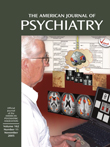Clinical Presentations and Treatment Outcomes of Peacekeeper Veterans With PTSD: Preliminary Findings
Abstract
OBJECTIVE: Despite evidence of potential psychiatric sequelae following peacekeeping operations, no data have appeared on treatment outcome for this population. This study examined intake and treatment outcome data for a group of peacekeepers with posttraumatic stress disorder (PTSD). METHOD: Participants were 63 Australian Vietnam veterans and 66 Australian peacekeepers attending specialized PTSD treatment units. Measures of PTSD, depression, anxiety, alcohol use, and anger were obtained at intake and 3-month follow-up. RESULTS: PTSD scores were more severe for peacekeepers than Vietnam veterans at intake, primarily in reexperiencing symptoms. In terms of comorbidity, only anger was higher among peacekeepers. No differences were apparent in treatment outcome. Initial anger predicted change in PTSD severity for peacekeepers. CONCLUSIONS: The finding of differences between peacekeepers and Vietnam veterans in anger and reexperiencing symptoms, in addition to the attenuating role of anger on treatment outcome, suggests that modification to standard PTSD treatment models may be warranted for peacekeepers.



